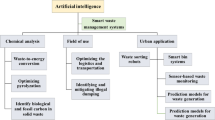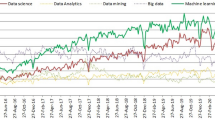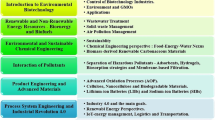Abstract
Due to the limited resources available, the sharing economy appears as a potential attempt for economic progress. Modern technology instruments and an information component are used in the current trend, in contrast to traditional techniques of product reuse or recycling. The Internet of Things (IoT) would be the primary instrument for integrating Economic Community (EC) into technology. The foundation for realizing the shared vision of EC and IoT is proposed in this study. Production times can be increased, and green innovation strategies have been successfully applied, to maintain, repair, or to produce. When the corporation changes the system, retirees can be sold to startups or donated to developing nations. The overall strategy lengthens the lifespan of properly maintained electronic assets for both the participating businesses and the corporation being investigated. Recycling companies might keep connected to the supplier network as well as the condition of the resources to decide on their investment strategy at the end-user, assisting in the solution of the problem of electronic waste produced in developing nations.




Similar content being viewed by others
References
Appolloni A, D’Adamo I, Gastaldi M, Santibanez-Gonzalez ED, Settembre-Blundo D. Growing e-waste management risk awareness points towards new recycling scenarios: the view of the Big Four’s youngest consultants. Environ Technol Innov. 2021;23: 101716.
Sari DP, Masruroh NA, Asih AMS. Consumer intention to participate in e-waste collection programs: A study of smartphone waste in Indonesia. Sustainability. 2021;13(5):2759.
Garg CP. Modeling the e-waste mitigation strategies using Grey-theory and DEMATEL framework. J Clean Prod. 2021;281: 124035.
Aboelmaged M. E-waste recycling behavior: an integration of recycling habits into the theory of planned behavior. J Clean Prod. 2021;278: 124182.
Maddala VKS, Jayarajan K, Braveen M, Walia R, Krishna P, Ponnusamy S, Kaliyaperumal K. Multisensor data and cross-validation technique for merging temporal images for the agricultural performance monitoring system. J Food Qual. 2022. https://doi.org/10.1155/2022/9575423.
Attia Y, Soori PK, Ghaith F. Analysis of households’ E-waste awareness, disposal behavior, and estimation of potential waste mobile phones towards an effective e-waste management system in Dubai. Toxins. 2021;9(10):236.
Shittu OS, Williams ID, Shaw PJ. Global E-waste management: Can WEEE make a difference? A review of e-waste trends, legislation, contemporary issues, and future challenges. Waste Manag. 2021;120:549–63.
Malekkhouyan S, Aghsami A, Rabbani M. An integrated multi-stage vehicle routing and mixed-model job-shop-type robotic disassembly sequence scheduling problem for the e-waste management system. Int J Comput Integr Manuf. 2021;34(11):1237–62.
Ilyas S, Srivastava RR, Kim H, Das S, Singh VK. Circular economy and environmental benignness through microbial recycling of e-waste: a case study on copper and gold restoration. Waste Manag. 2021;121:175–85.
Sagnak M, Berberoglu Y, Memis İ, Yazgan O. Sustainable collection center location selection in the emerging economy for electronic waste with fuzzy Best-Worst and fuzzy TOPSIS. Waste Manag. 2021;127:37–47.
Akon-Yamga G, Daniels CU, Quaye W, Ting BM, Asante AA. The transformative innovation policy approach to e-waste management in Ghana: perspectives of actors on transformative changes. Science and Public Policy. 2021;48(3):387–97.
Mohammadi E, Singh SJ, Habib K. Electronic waste in the Caribbean: an impending environmental disaster or an opportunity for a circular economy? Resour Conserv Recycl. 2021;164: 105106.
Latchoumi TP, Parthiban L. Quasi oppositional dragonfly algorithm for load balancing in a cloud computing environment. Wireless Pers Commun. 2022;122(3):2639–56.
Ilyassova G, Nukusheva A, Arenova L, Karzhassova G, Akimzhanova M. Prospects of legal regulation in the field of electronic waste management in the context of a circular economy. Int Environ Agreem Politics Law Econ. 2021;21(3):367–88.
Ishikawa K. The ASEAN economic community and ASEAN economic integration. J Contemp East Asia Stud. 2021;10(1):24–41.
Ananno AA, Masud MH, Dabnichki P, Mahjabeen M, Chowdhury SA. Survey and analysis of consumers’ behavior for electronic waste management in Bangladesh. J Environ Manag. 2021;282: 111943.
Karnan B, Kuppusamy A. Graph theory and matrix approach for machinability enhancement of cryogenic treated cobalt bonded tungsten carbide inserts. Int J Heat Technol. http://iieta.org/journals/ijht. 2021;39(4): 1372–1382.
Owusu-Sekyere K, Batteiger A, Afoblikame R, Hafner G, Kranert M. Assessing data in the informal e-waste sector: the Agbogbloshie Scrapyard. Waste Manag. 2022;139:158–67.
Rajbari M, Saidani M, Esfandabadi ZS, Peng W, Lam SS, Aghbashlo M, Tabatabaei M. Two decades of research on waste management in the circular economy: Insights from bibliometric, text mining, and content analyses. J Clean Prod. 2021;314:128009.
Ahirwar R, Tripathi AK. E-waste management: a review of recycling process, environmental and occupational health hazards, and potential solutions. Environ Nanotechnol, Monit Manag. 2021;15: 100409.
Devi GNR, Ponnusamy S, Pandit J, Buvaneswari B. Development of medicinal industries in building a replica to the damaged human tissue for artificial organs with the application of micro-and nano technology (Mnt). J Optoelectron Laser. 2022;41(3):79–83.
Wang F, Yu L, Wu A. Forecasting the electronic waste quantity with a decomposition-ensemble approach. Waste Manag. 2021;120:828–38.
Monica M, Sivakumar P, Isac SJ, Ranjitha K. PMSG-based WECS Control techniques MPPT methods and conrol strategies for standalone battery integrated system. AIP Conference Proceedings no 1, vol. 2405. Melville: AIP Publishing LLC; 2022. p. 040013.
Gupta H, Kumar A, Wasan P. Industry 4.0, cleaner production and circular economy: an integrative framework for evaluating the ethical and sustainable business performance of manufacturing organizations. J Clean Prod. 2021;295:126253.
Funding
No fund was received to carry out the work.
Author information
Authors and Affiliations
Corresponding author
Ethics declarations
Conflict of Interest
The authors declare that they have no conflict of interest.
Additional information
Publisher's Note
Springer Nature remains neutral with regard to jurisdictional claims in published maps and institutional affiliations.
This article is part of the topical collection “Research Trends in Computational Intelligence” guest edited by Anshul Verma, Pradeepika Verma, Vivek Kumar Singh and S. Karthikeyan.
Rights and permissions
Springer Nature or its licensor (e.g. a society or other partner) holds exclusive rights to this article under a publishing agreement with the author(s) or other rightsholder(s); author self-archiving of the accepted manuscript version of this article is solely governed by the terms of such publishing agreement and applicable law.
About this article
Cite this article
Stephen, A., Prasad, A.B., Dhal, P.K. et al. Median Economic Community Framework for Waste Management Using IoT. SN COMPUT. SCI. 4, 697 (2023). https://doi.org/10.1007/s42979-023-02123-2
Received:
Accepted:
Published:
DOI: https://doi.org/10.1007/s42979-023-02123-2




